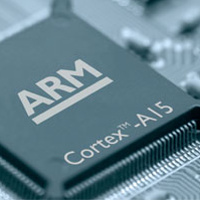 Bloomberg is reporting that Apple is planning a shift to its own main processors in Mac computers, replacing chips from Intel. The anticipated announcement is projected to come as early as this month at WWDC, Apple’s annual developer conference.
Bloomberg is reporting that Apple is planning a shift to its own main processors in Mac computers, replacing chips from Intel. The anticipated announcement is projected to come as early as this month at WWDC, Apple’s annual developer conference.
The company is holding WWDC the week of June 22. Unveiling the initiative, codenamed Kalamata, at the event would give outside developers time to adjust before new Macs roll out in 2021, Bloomberg reports. Since the hardware transition is still months away, the timing of the announcement could change.
The new processors will be based on the same technology used in Apple-designed iPhone and iPad chips. However, future Macs will still run the macOS operating system rather than the iOS software on mobile devices from the company. Bloomberg News reported on Apple’s effort to move away from Intel earlier this year, and in 2018.
Apple is using technology licensed from Arm Ltd., part of Japanese tech conglomerate SoftBank Group Corp. As reported in Bloomberg, this architecture is different from the underlying technology in Intel chips, so developers will need time to optimize their software for the new components. Cupertino, California-based Apple and Santa Clara-based Intel declined to comment.
This will be the first time in the 36-year history of the Mac that Apple-designed processors will power these machines.
Inside Apple, tests of new Macs with the Arm-based chips have reportedly shown sizable improvements over Intel-powered versions, specifically in graphics performance and apps using artificial intelligence, the people said. Apple’s processors are also more power-efficient than Intel’s, which may mean thinner and lighter Mac laptops in the future.
TSMC will build the new Mac processors using a 5-nanometer production technique — the same approach as for the next iPhones and iPad Pros. Intel rivals also use TSMC to make their chips.
The Apple chip project has been in the works for several years and is considered one of the company’s most secretive efforts. In 2018, Apple successfully developed a Mac chip based on the iPad Pro’s processor for internal testing, giving the company confidence it could announce such a shift this year.










